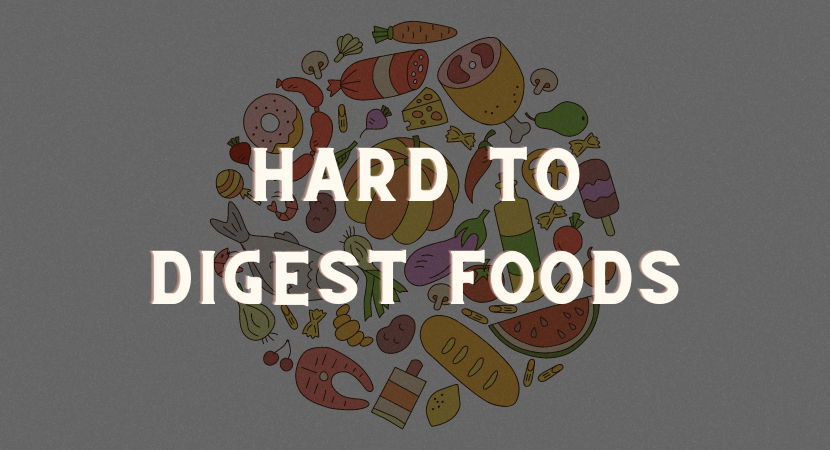Digestion is a complex process that involves breaking down food into nutrients that the body can absorb and utilize. However, certain foods can be difficult to digest, leading to discomfort and digestive issues.
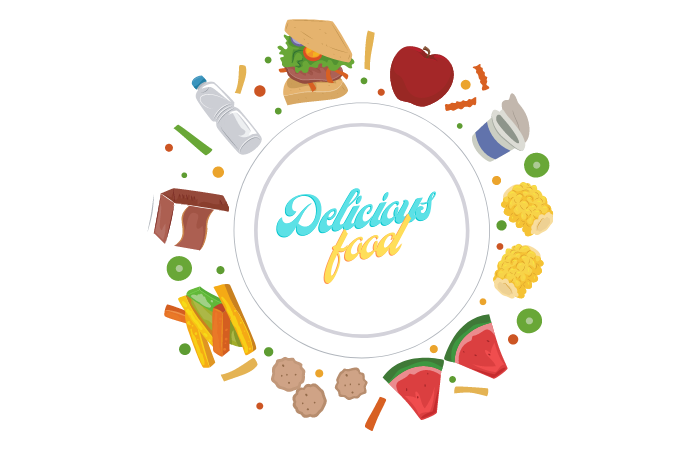
Hard-to-digest foods are those that the body has trouble breaking down and absorbing. Understanding these foods for digestive health is important, as poor digestion can lead to various health problems.
This article will explore the types of hard-to-digest foods, the factors that affect digestion, and tips for improving digestion and overall digestive health.
Factors Affecting Digestion
The digestion process begins in the mouth, where enzymes break down food in saliva. From there, food travels through the esophagus to the stomach, where it is further broken down by stomach acid and enzymes.
The food then moves to the small intestine, where most nutrients are absorbed into the bloodstream. The remaining waste products move to the large intestine and are eventually eliminated from the body.
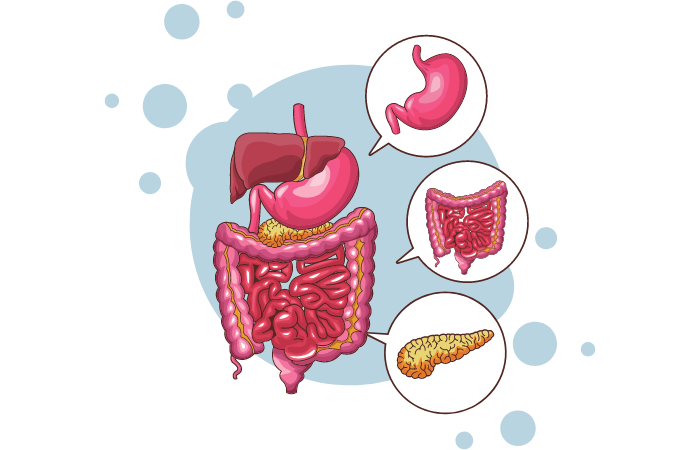
Several factors can affect digestion, including age, medical conditions, and medications. As we age, our digestive system becomes less efficient, making it more difficult to digest certain foods.
Medical conditions such as celiac disease, irritable bowel syndrome (IBS), and inflammatory bowel disease (IBD) can also impact digestion. Medications such as antibiotics, pain relievers, and certain diabetes medications can also interfere with digestion.
Types of Hard to Digest Foods
See the listed types of foods that you should avoid.
High-fat Foods
Foods high in fat can be difficult to digest as they slow the digestive process. This can lead to discomfort, diarrhea, and bloating.

Examples of high-fat foods include fried foods such as samosa, jalebi, and many more.
See Also: Top 7 Healthy Habits for Pregnant Women
Spicy Foods
Spicy foods can irritate the lining of the stomach, leading to heartburn, acid reflux, and stomach pain.

Examples of spicy foods include hot peppers, curry, and chili.
Processed Foods
Processed foods are often high in fat, sugar, and preservatives, making them difficult to digest. These foods also tend to be low in fiber, further slowing digestion.

Examples of processed foods include fast food, pizza, and burgers.
Foods High in Carbohydrates
Foods high in carbohydrates can also be difficult to digest for some people, particularly those with digestive conditions such as irritable bowel syndrome (IBS) or small intestinal bacterial overgrowth (SIBO).

High-carbohydrate foods such as bread, roti, and rice can cause fermentation in the gut, leading to bloating, gas, and abdominal pain.
Artificial Sweeteners
Artificial sweeteners are one of the types of hard to digest foods that can cause digestive discomfort in some people. Some people use sweeteners as sugar substitutes in diets, low-calorie foods, and drinks.
While they are low in calories, they can be difficult for the body to digest and absorb, leading to bloating, gas, and diarrhea.

The artificial sugars aspartame, saccharin, and sucralose are a few examples. While these sweeteners are generally recognized as safe by regulatory agencies, some people may be more sensitive to them than others.
It is important to pay attention to how your body reacts to artificial sweeteners and to consume them in moderation if they cause digestive discomfort.
Alcohol
When alcohol is ingested, it enters the bloodstream via the small intestine and stomach. The liver then metabolizes the alcohol, but if too much is consumed, the liver may not be able to keep up, leading to a range of digestive symptoms.

Some people may be more sensitive to alcohol than others, and consuming too much can lead to bloating, gas, diarrhea, and stomach pain. Alcohol can also irritate the stomach lining and cause acid reflux and heartburn.
In addition to these acute effects, long-term heavy drinking can lead to more serious digestive issues, such as liver disease and pancreatitis. It is important to consume alcohol in moderation and to pay attention to how your body reacts to it.
See Also: Buy the Best Treadmill for Home
Coffee
Coffee contains caffeine, which is a stimulant that can increase the production of stomach acid. This can lead to heartburn, acid reflux, and stomach pain. Coffee can also have a laxative effect and may cause diarrhea in some people.
In addition to caffeine, coffee contains other compounds, such as chlorogenic acid and catechols, which can irritate the stomach lining and cause inflammation. Gas and bloating are two digestive complaints that may result from this.

While some people may be more sensitive to coffee than others, it is important to pay attention to how your body reacts to it. Consuming coffee in moderation and with food can help reduce the risk of digestive discomfort.

If you experience persistent digestive issues after drinking coffee, avoiding it or switching to a lower-caffeine alternative may be best.
Dairy Products
Dairy products can be difficult to digest for people who are lactose intolerant or have a milk allergy.
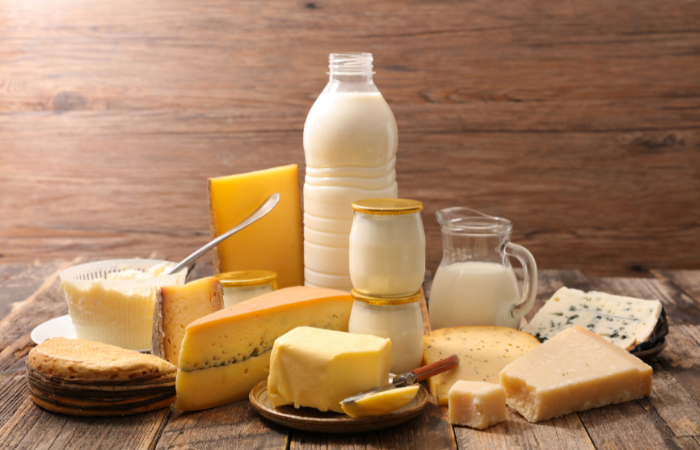
This is because they contain lactose, a sugar that can be hard for some people to break down. Examples of dairy products include milk, cheese, and ice cream.
Peppermint
Peppermint is actually known to have digestive benefits for many people, rather than being hard to digest foods. Also, Peppermint oil contains compounds that can relax the digestive tract muscles and help reduce bloating, gas, and abdominal pain.

Peppermint tea, in particular, is often recommended as a natural remedy for digestive issues such as irritable bowel syndrome (IBS) and other gastrointestinal disorders. However, in some people, peppermint can worsen symptoms of acid reflux, heartburn, and GERD (gastroesophageal reflux disease) due to its relaxing effect on the lower esophageal sphincter (LES) that separates the stomach and the esophagus.

Therefore, while peppermint is generally helpful aid for digestion, it is important to pay attention to how your body responds to it and consult a healthcare provider if you experience any persistent digestive issues.
Corn
Corn is another type of hard to digest foods that can cause digestive issues in some people. It contains a high amount of insoluble fiber, which can be difficult for the body to break down and digest. This can lead to bloating, gas, and abdominal discomfort.

Additionally, the outer shell of corn kernels is made of cellulose, which is particularly hard for the body to digest. This means that whole corn kernels are harder to digest than processed corn, such as cornmeal or cornstarch.
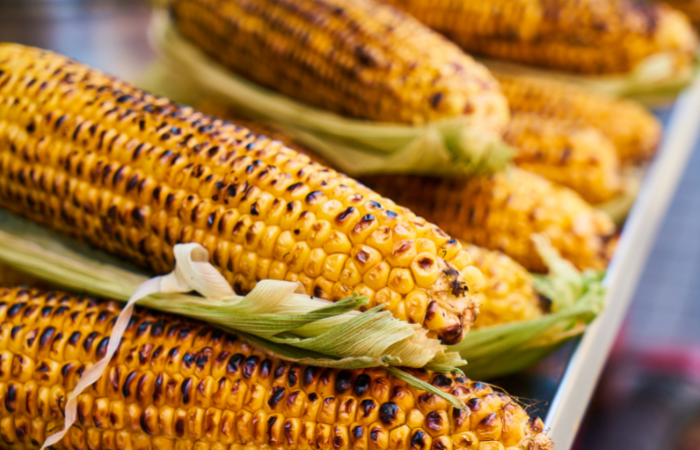
While some people may be more sensitive to corn than others, it is important to pay attention to how your body reacts to it. Cooking corn thoroughly and chewing it well can help to break down some of the insoluble fiber and make it easier to digest. If you experience persistent digestive issues after consuming corn, it may be best to limit or avoid it altogether.
Also Read: How to Stop Motions During Pregnancy
Final Thought
To sum up, hard to digest foods can cause some digestive symptoms in some people. It is important to pay attention to how your body reacts to certain foods and to change your diet if necessary.
Consuming a balanced and varied diet, staying hydrated, and chewing your food thoroughly can help support digestive health and reduce the risk of digestive discomfort.
Also, speaking with a healthcare provider to determine the underlying cause and develop an appropriate treatment plan is important.
